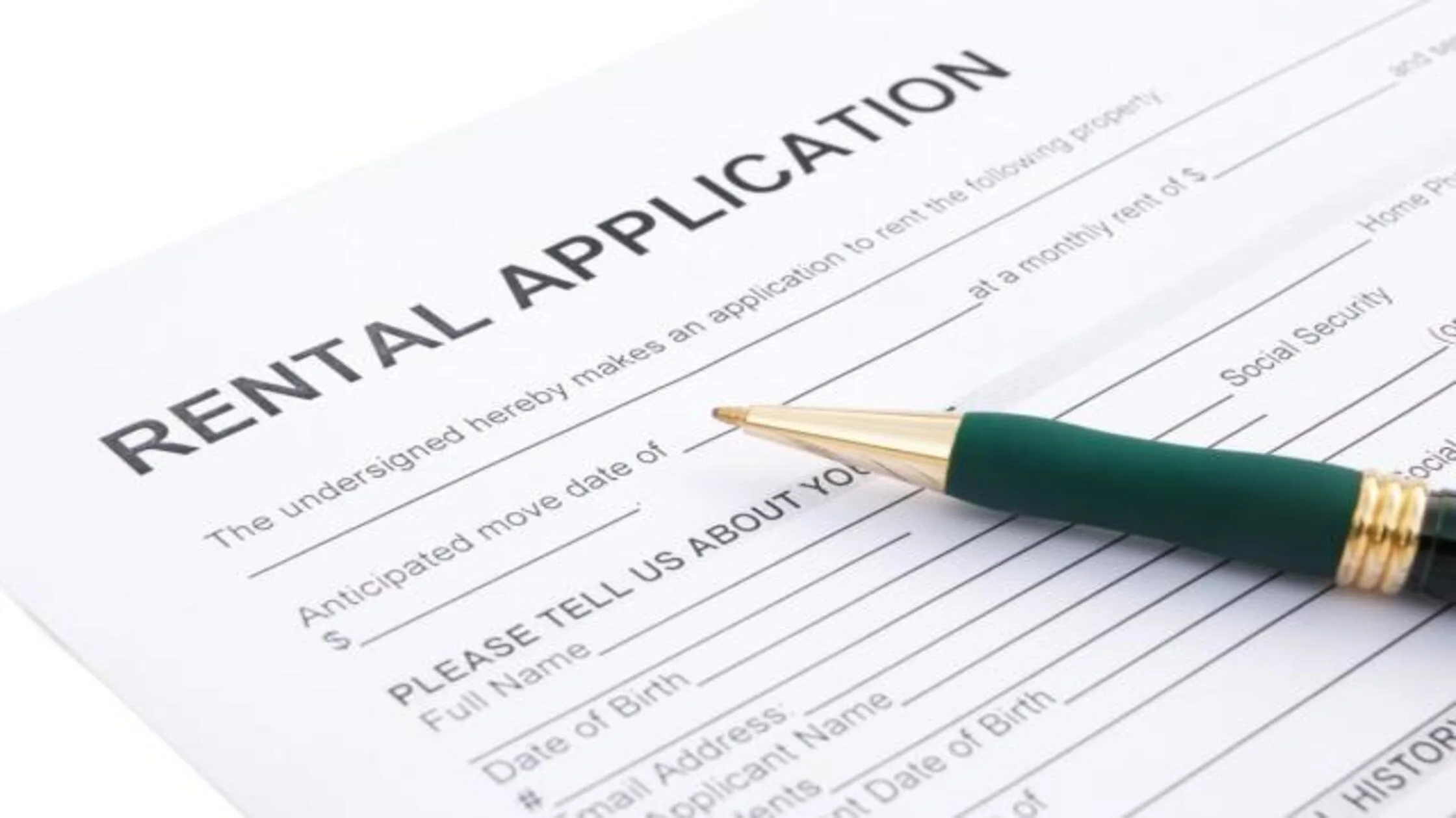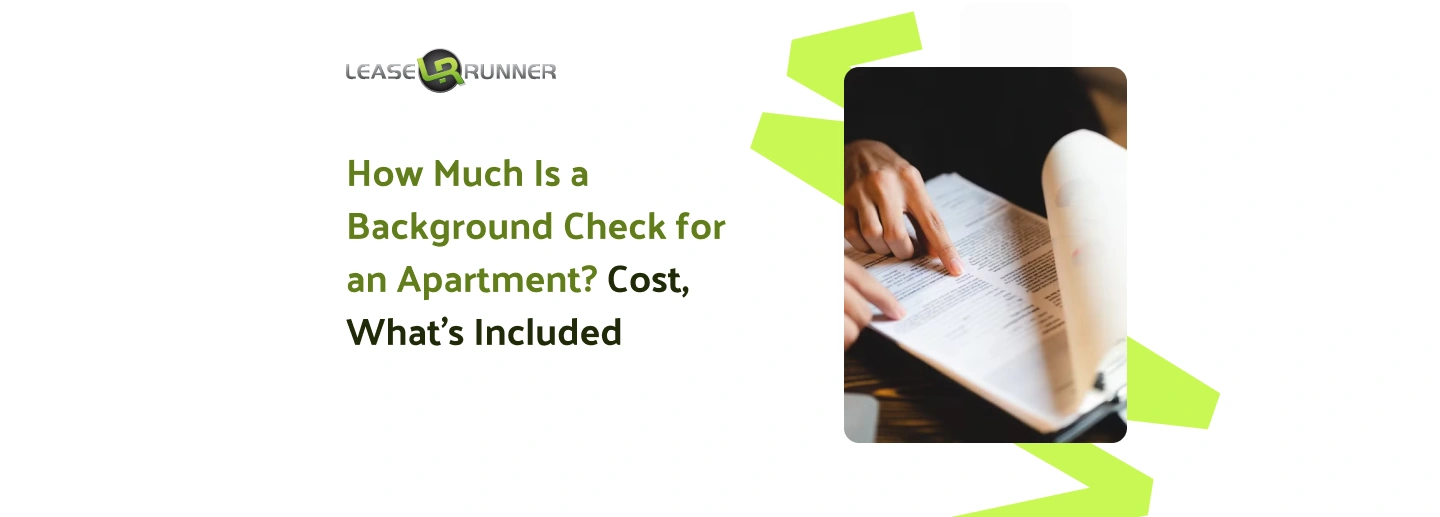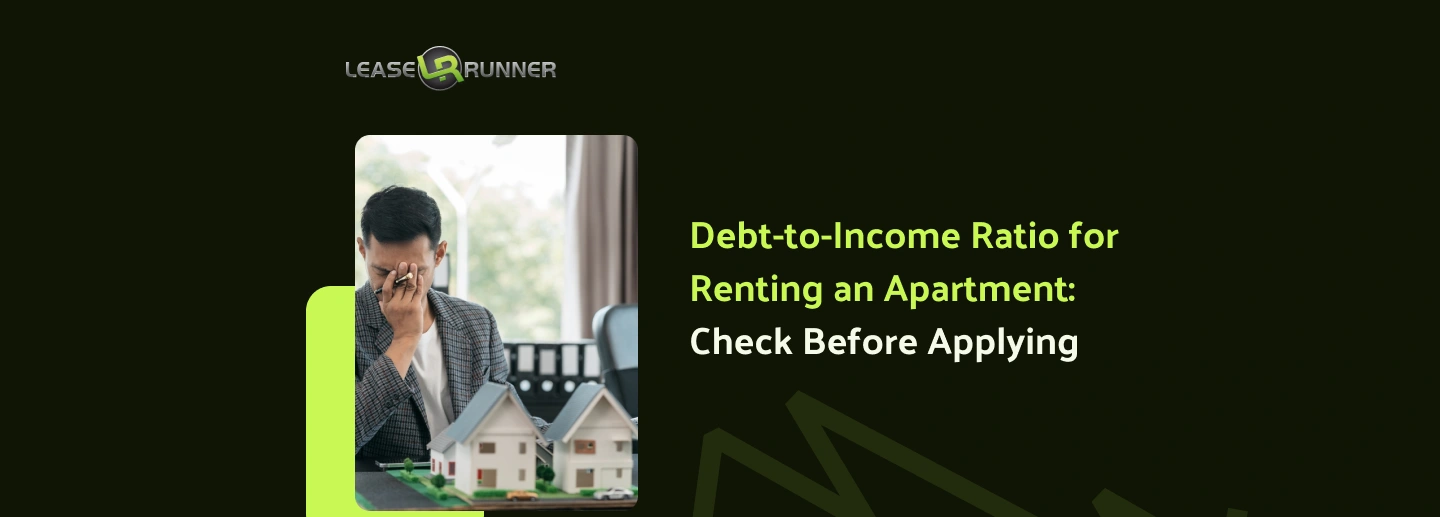
You’ve got a property to rent and people are applying, how do you know who’s the right fit? It all starts with smart, typical rental application questions. In 2025, landlords have to be careful about what they ask. These 10 landlord-approved questions will help you gather the info you need without stepping on legal landmines!
Below is a quick reference table of the top 10 rental application questions landlords can safely ask in 2025 to screen smarter.
Why It’s Important for Landlords to Ask Tenants the Right Questions?
The questions landlords ask on rental applications lay the groundwork for a smooth rental experience. These questions help landlords understand who they’re potentially renting to (they can expect rent on time, care for the property, and follow the rules of the lease).

Not to mention, in 2025, tenant screening laws will have grown more complex, and more new laws need to be complied with, so landlords need to stay informed about what’s legally acceptable to ask.
Beyond legal compliance, asking the right questions shows tenants that you take your role seriously and value clear communication. When tenants see that the rental application process is fair and thorough, it encourages honesty and sets a tone of mutual respect. This transparency benefits both landlords and renters.
10 Legal Rental Application Questions Every Landlord Should Ask (2025)
So, what questions to ask a potential renter?
The following 10 typical rental application questions serve as a practical checklist to help landlords collect essential information. These questions allow landlords to assess financial reliability, rental responsibility, and adherence to property rules, all while complying with current laws.
Let’s explore each of these questions and why they remain important tools for landlords managing rental properties in 2025.
1. Personal Information

Starting with personal information might feel basic, but it’s one of the most important parts of a good rental application. This info also helps landlords double-check identity when running credit or background checks later on. A few questions are:
- What is your full legal name?
- What is your date of birth?
- What is your current phone number?
- What is your email address?
- Can you provide a valid government-issued photo ID?
A few reasons why personal info matters:
- It ensures the applicant is who they say they are.
- It provides reliable contact details for updates, questions, or follow-ups.
- It helps avoid confusion if two applicants have similar names.
Without accurate personal details, landlords can easily lose track of an application or have difficulty verifying a tenant's history.
2. Employment and Income Information
This section is where landlords dig into whether a tenant can afford rent, for the duration of the lease. Knowing about current employment, length of job, and monthly income paints a picture of financial stability. Landlords want to feel confident that rent will show up on time every month, and employment info helps with that.
Some landlords even have minimum income requirements, like earning three times the rent, which makes this question even more important.
Consider asking for:
- Employer name and contact info
- Job title and length of employment
- Gross monthly or annual income
- Additional sources of income (if any)
Verifying this information through documents like pay stubs, bank statements, or employer letters helps protect the landlord’s investment. While no method is foolproof, a strong employment and income history often correlates with on-time rent payments and lease compliance.
3. Rental History

Looking back at an applicant’s rental history can be incredibly telling. It’s like a window into how they treat properties, interact with landlords, and manage their responsibilities. Asking for previous addresses, landlord references, and reasons for moving helps landlords spot red flags or confirm that the tenant has a history of being a good renter.
- It shows patterns of responsible tenancy or potential problem behaviors.
- It offers insight into payment habits and the care of past properties.
- It provides real-world feedback from previous landlords on the applicant’s reliability.
It’s wise to follow up directly with previous landlords and ask specific questions about the tenant’s behavior, communication, payment reliability, and property care. A simple phone call can reveal far more than a written form.
Tenants who are honest about past issues, like a one-time eviction due to job loss, demonstrate transparency and accountability, which are positive traits. Rental history, when verified, is one of the most accurate indicators of future behavior.
4. Credit and Background Information
Credit and background checks provide landlords with a comprehensive view of a prospective tenant’s financial habits, legal history, and overall reliability. It’s also a way to see whether they can have the ability to pay for application fees and house rent.
A landlord might ask permission to:
- Run a credit report showing debts, payment history, and credit score.
- Perform a background check for criminal records within legal limits.
Strong credit proves that someone is financially responsible and manages their bills well. Meanwhile, background screenings are equally important. Background checks help landlords ensure safety for everyone in the building, keeping out tenants with histories of violence or serious offenses. Of course, laws regulate how this info can be used, but when handled properly, it’s a powerful tool for screening.
5. Tenant and Pet Policies
Pets can be deal-breakers for some landlords, so asking about them upfront is key. Some properties allow pets but with restrictions, while others don’t allow pets at all. Getting clear answers here keeps everyone on the same page and avoids disputes later.
Questions to include might be:
- Do you have any pets? If yes, what kind and how many?
- Are your pets up-to-date on vaccinations?
- Are you willing to follow the property’s pet policies?
Besides pets, landlords often want to clarify rules about smoking, noise, or other tenant behavior that impacts the community.
6. Emergency Contact Information
This question shows landlords care about their tenants beyond rent checks. Having an emergency contact provides peace of mind and quick action in case something unexpected happens.
Good emergency contacts:
- Is someone the tenant trusts and who can be reached easily.
- Can assist landlords if tenants become unresponsive.
- Provide an additional layer of security and communication.
We recommend to ask these questions below to act quickly and responsibly if a critical situation arises:
- Who should we contact in case of an emergency involving you?
- What is their full name, relationship to you, and primary phone number?
- Is this person aware they’ve been listed as your emergency contact?
- Do you give permission for us to contact this person if urgent situations arise and we are unable to reach you?
7. Vehicle Information (if applicable)
For landlords offering parking or managing parking spaces, knowing about tenants’ vehicles is a must. It’s about keeping the property organized and safe, especially in crowded areas where parking spots are limited.
Collecting vehicle info helps landlords:
- Ensure only authorized vehicles park on site.
- Prevent disputes between tenants over parking spots.
- Track liability or insurance coverage if needed.
Consider asking the following questions:
- Do you own or lease any vehicles that will be parked on the property?
- How many vehicles will you be bringing?
- For each vehicle, please list (make and model, year, color, license plate number and state)
8. Criminal Background (within legal boundaries)
Asking about criminal backgrounds walks a fine line between safety and fair treatment. Landlords want to protect their communities, but laws limit how this info can be used to avoid discrimination.
It’s best to:
- Ask only about crimes relevant to tenant safety.
- Follow local laws and fair housing regulations strictly.
- Use this information alongside other factors, not as the sole decision point.
A careful approach helps landlords maintain a secure environment.
9. Occupancy Limits
Knowing how many people will live in a unit is about safety, property preservation, and legal compliance. Overcrowding can lead to excessive wear and tear, noise complaints, and even fire hazards. Clear communication about occupancy limits also helps avoid conflicts among tenants and neighbors.
Overcrowding can have significant consequences:
- Excessive wear and tear on the property (plumbing, flooring, appliances)
- Increased utility usage, especially in units where water or electricity is included in the rent
- Noise disturbances or disputes with neighbors, particularly in multi-family buildings
- Sanitation problems and trash overflow in shared areas
- Fire safety risks, especially if people are sleeping in non-bedroom areas or exceeding room capacity
- Code violations, as many municipalities and housing authorities enforce limits based on square footage or the number of bedrooms
To avoid these risks and stay aligned with local housing codes, it’s important to ask the right questions upfront:
- How many people (including yourself) will be living in the unit full-time?
- Please list the full names and ages of all proposed occupants.
- Will any occupants be staying on a part-time or rotating basis (e.g., shared custody, extended visits)?
10. Rent Payment History
Last but definitely not least, rent payment history speaks volumes about how dependable a tenant might be. Landlords want to avoid chasing rent or dealing with eviction processes, so asking about past payment habits helps set expectations.
Consider asking for:
- References from previous landlords about timely payments.
- Documentation, like bank statements or rent receipts.
- Details about any late payments or disputes.
Rental Application Questions Landlords Can Not Ask

Even though landlords need detailed information to make good tenant decisions, the law draws clear lines on questions a landlord cannot ask during the rental application process.
Protected Characteristics (race, color, religion, etc.)
Questions about race, color, religion, or any other protected characteristic are strictly prohibited. These details have no bearing on a tenant’s ability to pay rent or care for a property, and asking about them can lead to discrimination claims.
The Fair Housing Act and similar laws make it clear that landlords must evaluate applicants based on their qualifications, not their personal identity. Avoid questions or comments related to:
- Race or ethnicity
- Religious beliefs or practices
- National origin
- Disabilities or health conditions
- Receipt of housing vouchers or public assistance (e.g., Section 8)
Focusing on relevant tenant qualifications keeps the process fair. Every applicant has an equal shot.
Marital or Relationship Status
Asking about marital status or whether someone is in a relationship also falls outside legal bounds. These personal details don’t impact the tenant’s ability to pay rent or follow lease terms. For example, questions like “Are you married?” or “Do you live with your partner?” are off limits.
What matters more is how many people will be living in the unit (which relates to occupancy limits), not the applicant’s relationship status. This helps landlords avoid discrimination based on family composition or marital situation.
National Origin
Similar to questions about race and ethnicity, asking applicants about their national origin isn’t allowed. This involves questions about citizenship, place of birth, or language spoken at home. Even casual inquiries can be interpreted as discriminatory.
Landlords should focus on legal rights to rent (like valid identification and work authorization), but not on nationality itself. Screening based on national origin violates federal and state fair housing laws.
Sexual Orientation or Gender Identity
Questions about sexual orientation, gender identity, or gender expression are off-limits, too. These aspects of identity are deeply personal and irrelevant to rental qualifications.
Ensuring that applicants are judged by their ability to meet lease requirements creates a safer and more welcoming rental environment. Many states have laws reinforcing these protections beyond federal standards.
Additional Prohibited Questions
There are other questions a landlord cannot ask, including anything related to:
- Age or date of birth beyond verifying legal adulthood
- Disability or medical conditions
- Source of income (with some exceptions, like Section 8 vouchers, where discrimination is prohibited)
- Political affiliation
- Social media accounts or passwords
Methods to Verify Information from Rental Applications
Collecting information on a move-in application is just the first step. Verifying that information is the most important part. Landlords should use these common methods to verify information:
Income Verification
Verifying income is key to knowing that tenants can afford the rent. Landlords often ask applicants to provide:
- Recent pay stubs – Typically covering the past 30–60 days
- Bank statements – Useful for confirming direct deposits and financial habits
- Employer verification letters – A formal statement from the applicant's workplace confirming employment and salary
- Tax returns or 1099s – Especially helpful for self-employed applicants, freelancers, or gig workers
Carefully reviewing these documents allows landlords to go beyond surface-level claims and evaluate actual financial stability. Inconsistencies or vague documentation may warrant further follow-up or clarification.
Credit and Background Screening
Credit reports offer insights into an applicant’s financial responsibility by showing payment history, outstanding debts, and credit scores. Background checks, meanwhile, can uncover important red flags such as prior criminal activity, sex offender status, or eviction records.
We recommend using trusted platforms like LeaseRunner to streamline the tenant screening process. LeaseRunner provides comprehensive credit and background checks, delivered securely and in compliance with the Fair Credit Reporting Act (FCRA). Landlords must always obtain written consent from applicants before running these reports.
Rental History Checks
Speaking directly with previous landlords or property managers provides a level of insight that documentation alone can’t match. Rental history checks typically focus on:
- Whether rent was paid on time
- Condition of the property upon move-out
- Any lease violations or disputes
- Length of tenancy and reasons for leaving
These conversations can confirm the applicant’s claims or reveal inconsistencies. Combining rental history with credit and income verification results in a more accurate overall assessment.
Bottom Line
Smart landlords know that rental application questions are their first tool in screening responsible tenants. Asking the right questions while respecting legal boundaries turns a pile of applications into a trusted tenant pool. Explore more expert advice and rental tips on our LeaseRunner blog!
FAQs
Q1. What shouldn't be put on a rental application?
Avoid asking about anything related to protected characteristics such as race, religion, marital status, national origin, sexual orientation, or disability. These questions can get you into legal trouble. Also, don’t request sensitive personal info like social media passwords or irrelevant financial details. Stick to questions directly tied to tenancy qualifications, like income, rental history, and contact info.
Q2. What questions do I ask a potential renter?
Focus on questions that reveal the renter’s ability to pay rent on time and take care of the property. This includes employment and income info, rental history, credit and background details, pet policies, and emergency contacts. Asking about the number of occupants and vehicle info can also help manage your property better. Keep it clear, fair, and within legal limits to build trust from the start.
Q3. What is a credit reference for a rental application?
A credit reference usually comes from a credit report and provides landlords with insight into an applicant’s financial behavior. It shows things like payment history on loans and credit cards, outstanding debts, and credit scores. This helps landlords understand if a potential tenant manages money responsibly and is likely to pay rent on time. Sometimes, landlords may also ask for personal references who can vouch for the applicant’s reliability.
Q4. What’s the minimum income requirement to rent my property?
Income requirements can vary depending on the landlord, the property type, and the rental market. However, a widely accepted standard in the rental industry is that applicants should earn at least three times the monthly rent in gross income (before taxes and deductions). This 3x rent rule helps landlords assess whether a prospective tenant can reasonably afford to pay rent while still covering other essential living expenses, such as utilities, transportation, groceries, insurance, and debt payments. For example, if rent is $1,500 per month, most landlords would expect the tenant to earn at least $4,500 in gross monthly income.







